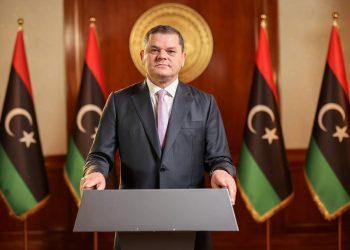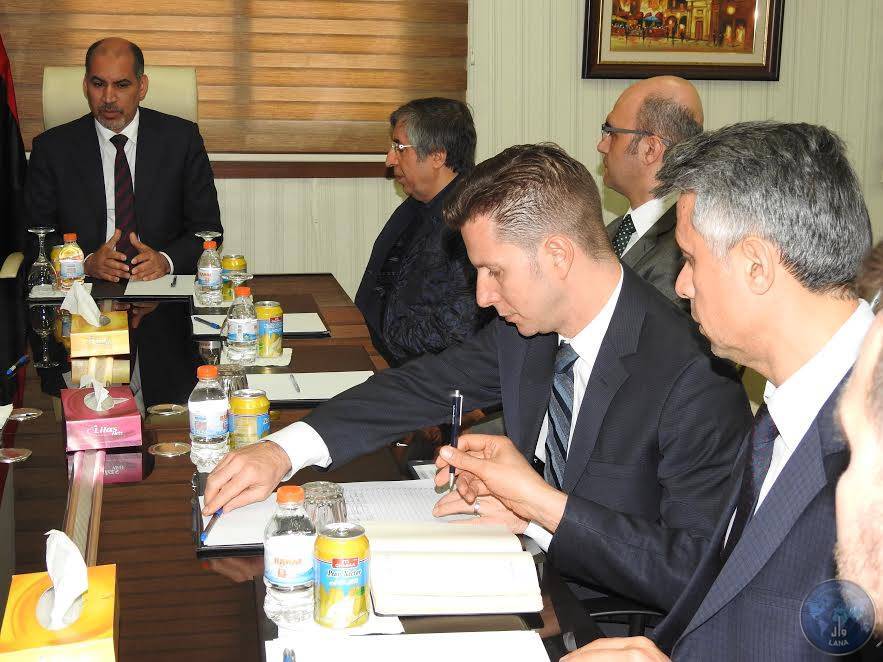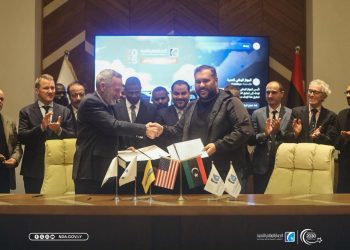By Libya Herald reporters.
Tunis, 13 March 2017:
American lawmakers plan to put Libya on the Trump administration’s “radar screen” after comments by a senior general that Russia was vying for influence in the country with the United States.
The head of the US Africa Command (“Africom”), Marine General Thomas Waldhauser, told the Senate’s foreign affairs committee last Thursday that “Russia is trying to exert influence on the ultimate decision of who becomes, and what entity becomes, in charge of the government inside Libya”.
The general said Moscow had been involved in talks with key parties, inviting Khalifa Haftar, head of the Libyan National Army, aboard an aircraft carrier, and holding talks with the head of the UN-recognised Presidency Council Faiez Serraj.
He told chairman Senator John McCain: “General Haftar (sic) has visited, as you said, on the carrier with the Russians. He’s also visited in the country of Russia. Also, this week it’s reported in the open press, Serraj from the Government of National Accord has also visited Russia.”
Senator Lindsey Graham asked the general whether Trump’s new Secretary of State, Rex Tillerson, should be involved:
“Would you say Secretary Tillerson is important in this regard?”
“Very important.”
“We need to put that on his radar screen?”
“Yes, we do.”
However, Waldhauser gave no policy specifics in his presentation, although he echoed recent comments by British and Italian ministers that Haftar must be incorporated in government. “We’ve got to get the entities, specifically Haftar, and the Government of National Accord, together to make an accommodation.”
Waldhauser, who authorised air strikes in ISIS in Libya in January, killing more than 80 militants, also told the Senate that the terrorist group remains on the ground.
“The status of ISIS in Libya is they are right now regrouping. They’re in small numbers, small groups.”
The hearing came a month after state-owned Russian oil firm Rosneft agreed an outline deal with Libya’s National Oil Corporation. US officials claim Russia may be taking sides as it is in Syria with groups opposed to those supported by America.
Tillerson, appointed by Trump in January, has yet to comment in detail on Libya policy and whether this will follow that of the former Obama administration, a key backer of the GNA.
In press releases, the US State Department has so far maintained the same line as the Obama administration, and last week joined the UK and France in a joint statement condemning fighting around the central oil ports and pledging support for the GNA.
However, one of the first foreign leaders Trump telephoned after assuming the presidency in January was Egyptian president Abdel Fattah El-Sisi, hitherto a close ally of Haftar, who is opposed to the GNA.
In Libya, many politicians and political analysts think the Trump administration, entangled in domestic politics, has yet to consider the Libyan crisis, leaving diplomats continuing to follow the policy of the Obama administration pending new orders. Others think the US has simply lost interest in Libya, noting that Obama’s special envoy Jonathan Winer has not been replaced.
Touring America, Libya’s former United Arab Emirates ambassador, Aref Nayad, a supporter of the Libya National Army, told the Heritage Foundation in Washington DC that the pro-GNA policy was still there “because of new administration hasn’t had a chance to revamp all of the policies and change the various embassy staff”.









